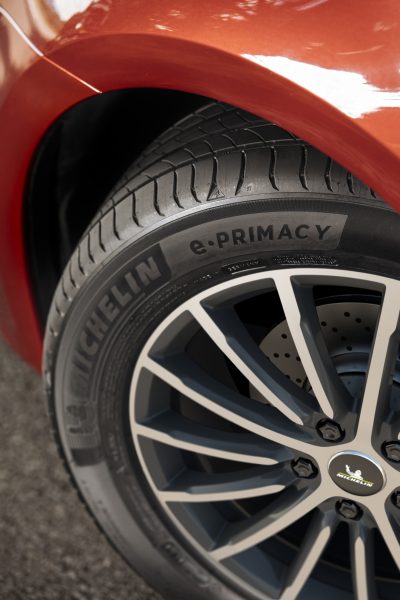Tyre maker Michelin is urging motorists and fleet managers to complete essential safety checks before dusting off cars or vans that may have had very little use over the past 12 months.
Being parked in one place for a significant period can affect handling, performance and safety, while drivers may also have neglected tyre maintenance during lockdown.
And longer-term changes to annual mileage due to post-pandemic commuting patterns underline the need for regular tyre checks, Michelin says.
Even if vehicles have not been used, tyres will have lost pressure, and driving on underinflated tyres increases fuel consumption at the same time as compromising handling, grip, braking and durability.
In addition, prolonged storage can create flat patches on the tyre, while being parked in oil or water for long periods – or on an object such as a stone – can also damage tyres.
On top of that, minor existing damage to the tyre may have worsened during storage, and cracking and hardening may be an issue.
As lockdowns start to ease across the UK, and work and leisure mileage increases, Michelin has outlined what drivers should be doing before setting out.
- Set tyre pressures to the vehicle manufacturer’s recommendations
- Visually check all tyres for bulges, cuts, excessive cracking or other damage or unusual signs
- Move the vehicle to expose the part of the tyre that has been in contact with the ground and carry out the same visual checks. Flat patches can create internal weakness, which can lead to failure in use
- Check tread depth. The legal minimum tread depth is 1.6mm around the entire circumference of the tyre in a band making up 75 per cent of the tyre’s breadth
- If in any doubt, or if you believe a mounted tyre has been significantly underinflated for a long period of time while in storage, seek professional advice.
Motorists should also remember that tyres which have been in use for five years or more should continue to be inspected by a specialist at least annually. Any tyres in service 10 years or more from the date of manufacture, including spare tyres, should be replaced as a precaution – even if they still appear serviceable and have not reached the legal wear limit.
The date of manufacture is shown on the side of the tyre. Drivers should find the code which begins with the letters DOT. A DOT code ending in “2210” indicates a tyre made in the 22nd week of 2010.
Brian Porteous, Technical Manager for Car, Van and 4×4 at Michelin UK, said: “This is especially relevant as the way we live evolves after the pandemic. Flexible working and homeworking are likely to become more common, while many meetings will continue to take place digitally. This means mileage will drop and tyres will last longer and be more open to age and the long-term effects of minor damage. There will also be longer periods between servicing, so more than ever drivers have to take responsibility for inspecting their tyres regularly – for the sake of their safety and their wallets.”
For more information, visit www.tyresafe.org or www.michelin.co.uk
Ends
Michelin, the leading mobility company, is dedicated to enhancing its clients’ mobility, sustainably; designing and distributing the most suitable tyres, services and solutions for its clients’ needs; providing digital services, maps and guides to help enrich trips and travels and make them unique experiences; and developing high-technology materials that serve a variety of industries. Headquartered in Clermont-Ferrand, France, Michelin is present in 170 countries, has 123,600 employees and operates 71 tyre production facilities which together produced around 170 million tyres in 2020. (www.michelin.com)
For further press information please contact:
David Johnson, Michelin Press Office
Tel: + 44 (0) 1782 402341 Email: d.johnson@michelin.com
Lois Spall or James Keeler, Garnett Keeler PR, Inver House, 37-39 Pound Street,
Carshalton, Surrey, SM5 3PG
Tel: +44 (0)20 8647 4467 E-mail lois.spall@garnettkeeler.com / james.keeler@garnettkeeler.com
MICHF/330/21





